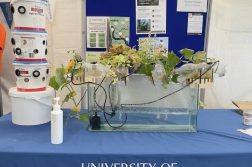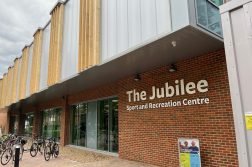In the most recent survey from the National Union of Students (NUS) regarding the coronavirus response from academic institutions, over 1 in 4 students responded negatively to the premise that they were able to adequately access online learning to complete their studies. Following phase I earlier in March and the subsequent release of data in April, phase II of the Coronavirus and Students Survey took place in July, surveying nearly 4,200 students nationwide. Results were released earlier this month.
In response to the statement, “I am able to access the online learning sufficiently to complete my studies e.g. I have access to the necessary equipment,” 27% of students were either neutral or in disagreement: 12% neither agreed nor disagreed, 10% disagreed, and 5% strongly disagreed. Issues cited included having no access to physical resources, online materials being insufficient, a lack of IT equipment/technology, absent or poor Wi-Fi, and having no access to IT programmes/software.
Furthermore, in response to the statement, “the online provision is of a good standard/quality,” 38% of students did not agree: 19% neither agreed nor disagreed, 13% disagreed, and 6% strongly disagreed. Among those receiving learning support from their institution, 19% did not feel the support they received sufficiently enabled them to continue their work to their highest standard through the pandemic.
These data demonstrate notable increases in initial statistics from March, in which 20% of students responded that they were unable to access their education online and 33% of students did not agree that their online education was up to standard.
Larissa Kennedy, NUS National President, commented on the implications of the survey’s findings. “It is unacceptable that these numbers of students have been unable to engage with their learning during this pandemic. These figures must act as a wake-up call to the government and the entire education sector so that all students have the resources that they need for their learning before the start of next term.”
“Students who have not been able to receive the teaching that they were entitled to last term must be given the option to redo the term, or have their fees written off or reimbursed,” she continued. “Coronavirus has entrenched the disadvantages that students of colour, disabled students and working-class students experience, and this should be of concern to all of us. If we are to ensure that education is accessible for all we must eradicate injustice as quickly as we can, such as by providing students with the resources and technology that they need to learn.”
Turning to a positive interpretation of figures, further prompts regarding assessment yielded that 2 in 3 students were satisfied to some extent with the alternative methods adopted by universities. 2 in 3 students also reported reaching their expected level of achievement in their assessments, with just under half saying their results were unaffected by the pandemic and a fifth saying they had in fact improved. This offers quantitative insight on the effect of no-detriment policies and alternatives to examination adopted across institutions.
The findings from both phases of the survey illustrate the challenges that lay ahead for institutions in satisfying students’ expectations. Hillary Gyebi-Ababio, NUS Vice President for Higher Education, gave closing remarks. “It’s evident from our research that the demand for academic support by students is going to go up even more than we’ve already seen during the pandemic, with many already turning to their students’ unions which have also been hit hard financially by COVID-19.”
“Funding from many institutions to students’ unions is going down just as students need them most, and due to the lockdown few have been able to secure alternative funding through their commercial activities to bridge the gap. The role that students’ unions play in the student experience has only increased over the last few months and they must be given the support and resources they require to continue this crucial work.”
The findings of both phase II and phase I of the survey are publicly available online.



